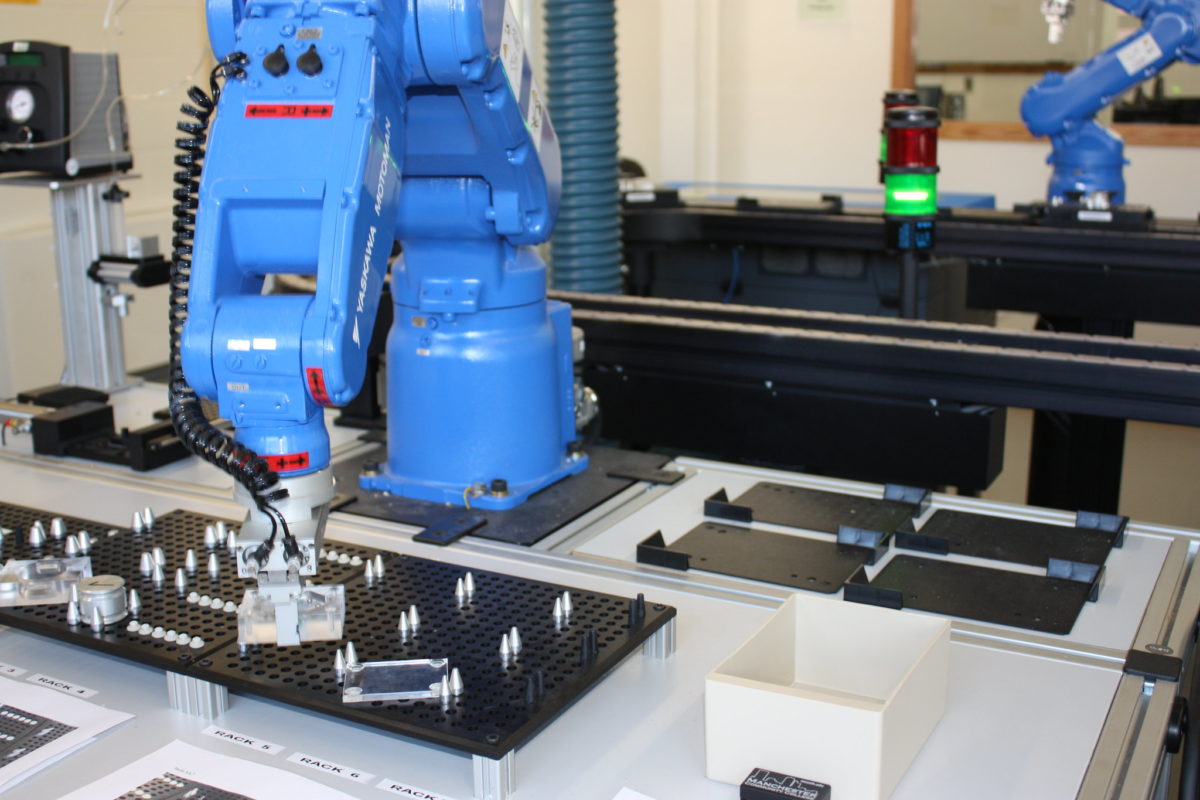With July’s arrival, many looked forward to summer plans, but it was also a time when new laws passed by Maryland’s state government went into effect.
Every year, the legislature passes a flurry of bills in its three-month session, so the time when new laws are enacted offers a chance to take a look at what made it out of Annapolis.
Among the measures this year was one that focuses around tech-focused economic development, with a specific eye on manufacturing. Companion bills HB658 and SB444, introduced by Sen. Chris West (R-Baltimore County) and Delegate Lily Qi (D- Montgomery County), created the Transforming Manufacturing in a Digital Economy Workgroup. It tasks a group of leaders with studying the latest manufacturing technologies, and how they can be implemented to help Maryland companies.
Dr. Mike Galiazzo, CEO of the Regional Manufacturing Institute of Maryland, drove the creation and passage of the bills. He sees technology on the horizon that will make a big difference in the production of goods, like quantum computing, connected systems that fall under the banner of the Internet of Things, 5G, robotics and virtual reality. This wave of advancement in automation, which harnesses computing to make systems become more efficient, data-driven and connected, is called Industry 4.0.
“There are technologies out there that are changing our world of work everyday. In order for Maryland manufacturers to grow at a significant rate, we need to help them adopt technologies that allow them to grow faster,” Galiazzo told Technical.ly. “At the same time, we want to make sure that the workers are getting the skills required to work in these new technologically advanced environment.”
Galiazzo also sees some of this technology being developed in Maryland.
“Maryland is a hotbed of innovation, of technology and of entrepreneurship,” he said. “I want to link that movement to the manufacturing industry.”
He points out that careers in manufacturing lead to living wages, even as companies are still seeking workers. As tech is introduced, training can equip workers in the field to stay within these companies as they bring in new tools. So manufacturing and tech can exist side-by-side as a part of the state’s economic future, Galiazzo said: Identifying the skills that will be needed and how to provide training and education can help employers ensure that the workers are there, too.
The workgroup will be digging into the advanced technology that is available for manufacturing, as well as how employers can invest in this technology. It will examine how to create programs that can spur interest in this technology, and recommend policies that the state government could adopt or public-private partnerships it could catalyze to encourage adoption, as well as workforce development.
“We’re trying to make manufacturing a priority with public policymakers,” the CEO said.
Industry leaders on the panel include the following:
- Kenneth Sanchez, president, Chesapeake Specialty Products, Inc.
- Bob Mather, VP-Lean, I4.0 and advanced manufacturing, Stanley Black & Decker Global Operations
- Kunjan Tokekar, director of industrial engineering, Volvo Group Trucks
- Thomas VanCott, Ph.D., chief technology and strategy officer, Catalent Cell & Gene Therapy
- April Richardson, Esq., managing partner, Food Opportunity, LLC
It will also include representatives from the following agencies and organizations:
- Maryland State Senate
- Maryland House of Delegates
- Maryland Department of Information Technology
- Maryland Department of Commerce
- Regional Manufacturing Institute
- Maryland Department of Labor
- Maryland Manufacturing Advisory Board
- Maryland Association of Independent Colleges & Universities
- Maryland Association of Community Colleges
- University System of Maryland
- Maryland Manufacturing Extension Partnership
- RAMPMD
- Maryland Tech Council
- Fraunhofer Center Mid-Atlantic
- Maryland AFL-CIO
- Printing & Graphics Association Mid-Atlantic
- Maryland Small Business Development Center
Join our growing Slack community
Join 5,000 tech professionals and entrepreneurs in our community Slack today!
Donate to the Journalism Fund
Your support powers our independent journalism. Unlike most business-media outlets, we don’t have a paywall. Instead, we count on your personal and organizational contributions.





